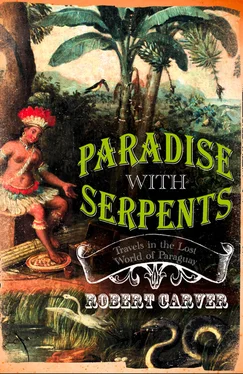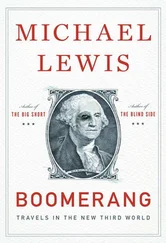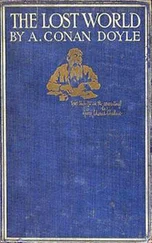Often called ‘Irish’, Eliza Lynch claimed to have been born in County Cork of Ascendency, Protestant parentage, and educated in Paris. She was a woman of cultivation and taste, speaking French, Spanish and Guarani with fluency, and played the piano, sang and danced with distinction. She had attached herself to López in Paris when he had been Ambassador at large in Europe, arriving with a substantial entourage and ample funds, the first the independent Paraguay had sent across to Europe. López had made the Grand Tour through France, Italy, England and the Crimea, where he observed the war in progress. In France he collected Napoleonic uniforms for his army officers, and from England guns and steamships supplied by the London firm of Blyth Brothers, who were also to send out a stream of technicians to Paraguay which enabled López to build up his army, navy and arsenal quickly enough to take on the three other regional powers all at once, very nearly beating them. López and Lynch returned to Paraguay with a complete kit for DIY imperial splendour – Sèvres and Limoges china sets, a Pleyel piano, fabrics, sewing machines, books, pictures, manuals of etiquette and court ritual, ladies’ maids and dancing masters, curtains, furniture and antimacassars. López actually went as far as to have a golden crown designed and sent out from France, but it was intercepted at Buenos Aires, and he never managed to have himself crowned Francisco I – even though he was referred to as such in some outlying provinces of Paraguay. Considered a great beauty, Eliza Lynch was the first modern career-blonde to arrive from Europe in South America with a mission, and a protector with enough money and political clout to make her ascent possible. Eva Perón, native-born South American, trod very much in the footsteps of Madame Lynch. Both of them were reputed to have been common whores working in brothels in their youth.
Madame Lynch created a sensation among the Guarani Indians, to whom she seemed an embodiment of the Virgin Mary. To the Creole elite of old Spanish blood she was an interloper, and a putana – a whore. They refused to recognize her, and eventually, when López got into his stride, were exterminated for their pains. López already had a wife and children established before he left for Europe and the new, big ideas he imbibed over there. Madama , as Lynch became known, was set up in style by López in Asunción, and formed her own alternative Court in her houses, which she decorated and furnished in the latest Parisian style. She was the cynosure of wit, elegance and art in a backward provincial capital that was nothing more than a village by a clearing in the jungle on the river. She came into her own when López senior died and Francisco Solano took over supreme power. López and Lynch turned the Pygmalion story upside down – Dr Higgins the rustic hayseed instructed by the sophisticated Parisienne Eliza Doolittle. Paraguay has always been, it would seem, a country of strong, capable women and weak, vain, indolent, incapable men. Whatever small quantity of sense Solano López may ever have had seems to have been provided by his mistress, though her detractors claim that it was her evil genius which spurred him on in his disastrous military and imperial ventures. The idea of becoming Emperor of Paraguay was not particularly absurd; there were in existence two new-minted empires – Brazil and France – as well as the older Russian, British, Austro-Hungarian and Turkish imperia. The fall of Napoleon III’s empire saw the creation of a German empire to replace it. Nor was defeating Argentina, Uruguay and Brazil particularly ambitious. They were all weak, poorly led and disorganized. The problem was that Solano López was consumed with vanity and egotism, trusted no one, and set about killing off his family and anyone in Paraguay of any ability and competence. Had he done nothing, and let his generals, British technical experts and brave soldiers simply attack the enemy, there is little doubt he would have defeated them and become Emperor of southern South America.
What is not in doubt is that Madame Lynch introduced into Paraguay an element of courtly style, of elegance, of well-dressed chic which had never been seen before, and which among the upper classes, survives and flourishes to this day. Paraguay, under her aegis, became a place of masked balls, river-boat picnics with brass bands in attendance, elaborate full-dress evening dances, classical music concerts, theatrical and opera performances, and champagne suppers. Everything had to be shipped up the river, and before that across the Atlantic from France, but neither time nor distance was any hindrance to the dandies and belles of either the 18th or 19th centuries. The details of all the wine imported by Thomas Jefferson from Château Margaux to his estate in Virginia still exist today in the Bordeaux archives. The Madame Lynch belle-of-the ball legacy lives on vibrantly today, and one of the startling features which elevates Paraguay from, say, the Congo, which in other ways it closely resembles, is the old-fashioned chic and elegance of the rich in Asunción, who still dress in long white gowns, full evening dress, starched shirts and tailcoats, and attend high-society balls with bands, masters of ceremony, sprung ballroom floors and all the other appurtenances of courtly behaviour now more or less a memory in Europe. The Society pages of Ultima Hora revealed a social Asunción which looked like Paris before the First War – pearls, tiaras, wing-collars, black or white tie, patent leather shoes, full orchestras in uniform – all a thousand miles up the river and in the sub-tropical jungle. At the Gran Hotel I was witness to all this, for every weekend some celebration would be mounted in the ballroom: Strauss waltzes would echo from the Indian orchestra in dress uniform, and the belles of Asunción would trip the light fantastic while outside waiters in white-starched uniforms with cummerbunds would circulate with canapes and champagne on silver trays held high over their heads. The debutante balls of the season were all lovingly photographed and reported in the Society pages, everyone’s name printed in full; it made light relief after the litanies of crime, corruption and bankruptcy on all the other pages.
Asunción’s bizarre elite were really too much. In a city where so many were almost starving there were no less than four Tiffany’s jewellery shops, and the company was doing so well that they could afford to take out full-page advertisements in the papers promoting their latest imported deluxe items from New York. Whether she had or had not lived in the old estancia that had become the Gran Hotel, all this was certainly the result of Eliza Lynch’s meteoric passage through Paraguay. Without doubt she and López and their Court would have danced here, for it would have been one of the few ballrooms in the city of that time able to accommodate large parties. It was somehow very Paraguayan to have breakfast under an artificial, painted tropical sky, installed by emigre Sicilians, when outside through the open french windows real Paraguayan tropical birds sat in real tropical foliage, fed from time to time by indigenous Guarani servants. I was reminded of the old Chinese saying: ‘Is Chuang-zu dreaming of the butterfly, or is the butterfly dreaming of Chuang-zu?’
Five
Paraguay, Champion of America
The census had not been a success, according to the press. Incomplete, notorious disorganization, several suburbs of Asunción left out completely the journalists all reported. Perhaps it had all been as inefficient under Stroessner, only then no one would have known, because in those days the press had been allowed to report nothing but peace, progress and order – the regime’s apt motto, reflecting three much desired qualities in Paraguayan life, and notable mainly for their complete absence in the post-Stroessner polity. The students who had actually carried out the census with their clipboards and serious expressions, knocking on individual doors and demanding entrance, like latter-day emissaries of King Herod, had been paid 5,000 guaranis for their day’s work, sometimes only 2,500 guaranis. A bus ticket in Asunción cost 1,300 guaranis. Everyone had been restricted to their place of residence all day long, forbidden to take to the streets, which was why I had received so many sidelong glances and felt so much discomfort when I was busy striding about the town taking photographs.
Читать дальше











